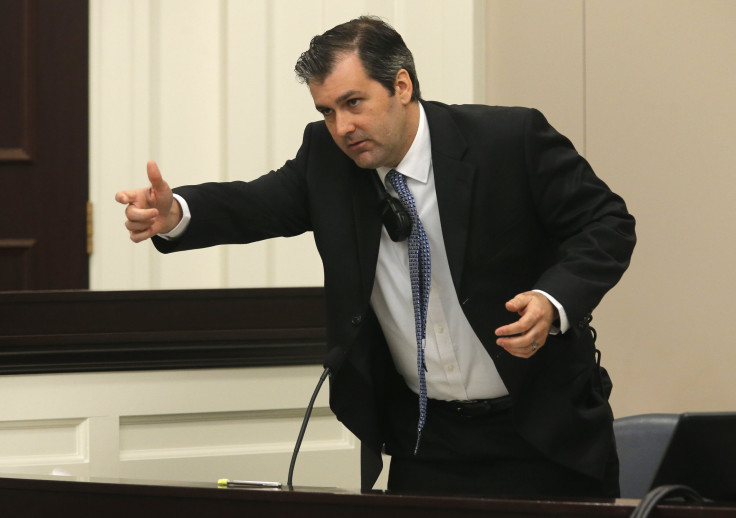Who Is Michael Slager? Walter Scott Hung Jury Leads To No Charges For Former Charlestown Police Officer

The trial of former South Carolina police officer Michael Slager’s killing of motorist Walter Scott ended Monday in a mistrial. After days of deliberation, the jurors announced they could not come to a consensus.
The jury, comprised of 11 white individuals and a single black person, had failed to reach a unanimous decision on convicting Slager for murder or voluntary manslaughter Friday and informed Court Judge Clifton Newman it needed the weekend to reach its verdict. The jury submitted a plethora of questions about the case to Newman on Monday as reasons why they had failed to make a decision, including why the court added the option of indicting Slager with a voluntary manslaughter charge Wednesday. They additionally asked Newman for a clearer definition about what was meant by “sufficient provocation,” “imminent danger,” “aforethought” and “self defense."
Newman answered the jury’s questions Monday afternoon, saying there was enough evidence to include the lesser charge of manslaughter in the jury’s decision for Slager, and that the difference between manslaughter and murder was that murder meant that Slager committed the act with malice toward Scott, the Post and Courier reported Monday.
Slager, who is white, shot Scott, who was black, five times in the back while the two men were having a physical altercation after Slager pulled Scott over in his car for a broken taillight on April 4, 2015. The fight occurred when Scott ran out of his parked car and Slager pursued him for roughly 200 yards on foot.
Slager maintained throughout his testimony last week that lethal force was necessary after Scott was able to pry Slager’s Taser gun and attack him with it, CNN reported. But a bystander video capturing the incident showed Scott was running away from Slager when the former police officer fired eight shots at Scott, sending him face first into the grass.
“He didn’t shoot him because of the brake light,” Slager’s lead defense lawyer Andrew J. Savage III said in his closing argument. “He shot him in fear of his life.”
Newman read aloud a letter sent to him from one unidentified juror Friday that stated despite not being able to truthfully say Slager was innocent, he or she couldn't get themselves to hand Slager a guilty verdict.
In a separate note, the jury’s foreman, who is the only black member on the panel, blamed the one juror for the panel's indecision and said he or she "needed to leave," according to a Los Angeles Times report Friday.
Jurors heard from 55 witnesses during the trial.
The indecision highlights the challenges of indicting law enforcement officers in the U.S. No charges resulted in the killing of another black man, Keith Lamont Scott, by Charlotte, North Carolina, police officer Brentley Vinson Wednesday despite having prior knowledge of Scott's mental health condition.
A judge in Baltimore similarly declared a mistrial in December when a jury failed to reach a verdict in the case of an officer charged in connection with the death of Freddie Gray. The same thing happened in Cincinnati in November when a deadlocked jury failed to indict former University of Cincinnati Ray Tensing for killing unarmed black motorist Samuel Dubos.
Scott was one of 968 people killed by the police in the U.S. in 2015, the Washington Post reported. Although black men represent 6 percent of the U.S. population, they made up 40 percent of those who were killed while unarmed.
After the Scott killing, Black Lives Matters activists called on citizens to hold police accountable for their actions.
“It is long past time to end the wave of terror against men of color in the U.S. The punishment for traffic violation is not death. Police officers are sworn to serve and protect...not to act as judge and jury in the street,” the Rev. Jesse Jackson said in Charleston just after Scott’s killing.
© Copyright IBTimes 2024. All rights reserved.






















